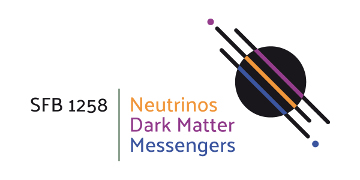Neutrinos are produced in the billions in the universe in a variety of high-energy events. After creation, they traverse space without leaving any traces or deviating from their trajectories. In this way, cosmic neutrinos testify to the massive processes at the verges of supermassive black holes - and other phenomena that burst our imagination.
Huge telescopes are needed to decipher their messages: volumes of several cubic kilometers of ice or water, instrumented with thousands of light sensors. The sensors capture the light trail created by the collision of a neutrino with a water molecule, enabling the scientists to determine the energy and direction of origin of the neutrino.
P-ONE aims at deciphering the secrets of cosmic neutrinos
Prof. Elisa Resconi recently launched an initiative to develop a new observatory for cosmic neutrinos in the Pacific Ocean, the Pacific Ocean Neutrino Experiment (P-ONE). For realizing the installation of the first telescope module with three strings, each 1000 meters long, off the coast of Canada at a depth of 2.6 kilometers, Elisa Resconi now received an ERC Advanced Grant.
So far, the IceCube neutrino detector at the South Pole - in which Elisa Resconi is involved - is the only telescope worldwide large enough to elicit the secrets of cosmic neutrinos. However, in order to really understand the high-energy events in the distant universe, further neutrino observatories and a global neutrino network are needed.
Elisa Resconi is Liesel Beckmann Professor for Experimental Physics with Cosmic Particles at the TUM Physics Department, spokesperson of the Collaborative Research Center 1258 Neutrinos and Dark Matter in Astrophysics and Particle Physics and a member of the Cluster of Excellence ORIGINS.
More on P-ONE, the Pacific Ocean Neutrino Experiment:
www.pacific-neutrino.org
TUM press release:
Medicine, Astrophysics, Machine Learning: Three cutting-edge research projects to receive EU funding
Contact
Prof. Elisa Resconi
Liesel Beckmann Professor for Experimental Physics with Cosmic Particles
Physics Department
Technical University of Munich
E: elisa.resconi@tum.de
T: +49 89 289 12422



